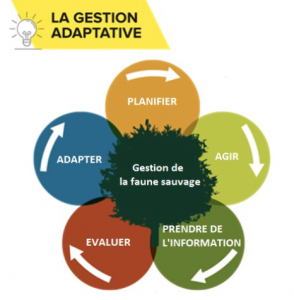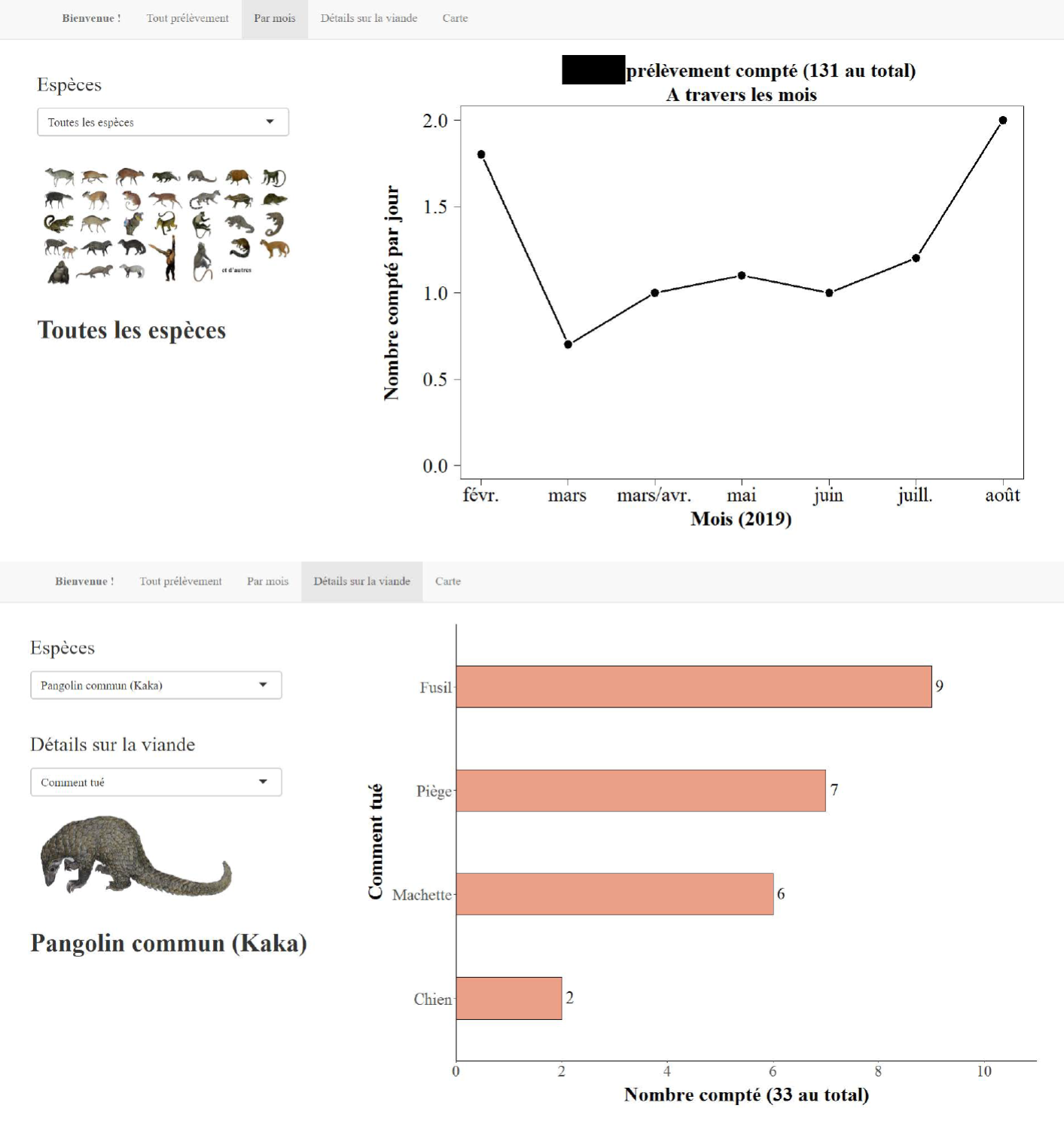Story from Anne Ntongho, CCNet Africa co-leader
Alex Ebang Mbélé and his team from Duke University’s Poulsen Ecology Lab are teaching Gabonese villages how to use adaptive management of bushmeat hunting to increase the abundance of forest wildlife and support the well-being of their communities and future generations. The team is facilitating the creation, support, and adaptation of community rules for sustainable hunting management in 10 villages on the periphery of the Ivindo, Mwagna, and Minkébé national parks. The rules communities put in places are not fixed; they must be evaluated regularly by the communities themselves, and each community can adapt its rules based on the information they collect from the field.
The process for setting up sustainable hunting rules follows five key steps:

Credit: Alex Ebang Mbélé
- Planning: Communities hold multiple meetings to decide on the creation of their sustainable hunting management rules.
- Action: Communities set a date to mark the start of compliance with the rules.
- Collect Information: Communities set up management committees that collect information on several aspects related to the level of compliance with the rules. In each village, para-ecologist hired and trained by the project collects data on the community’s availability, source, and use of bushmeat.
- Assess: Communities analyze the information using a data mining tool.
- Adapt: Communities adjust the rules based on the information available to them and then repeat the process.

Example of the data tool used to support sustainable hunting in Gabon. Credit: Alex Ebang Mbélé
